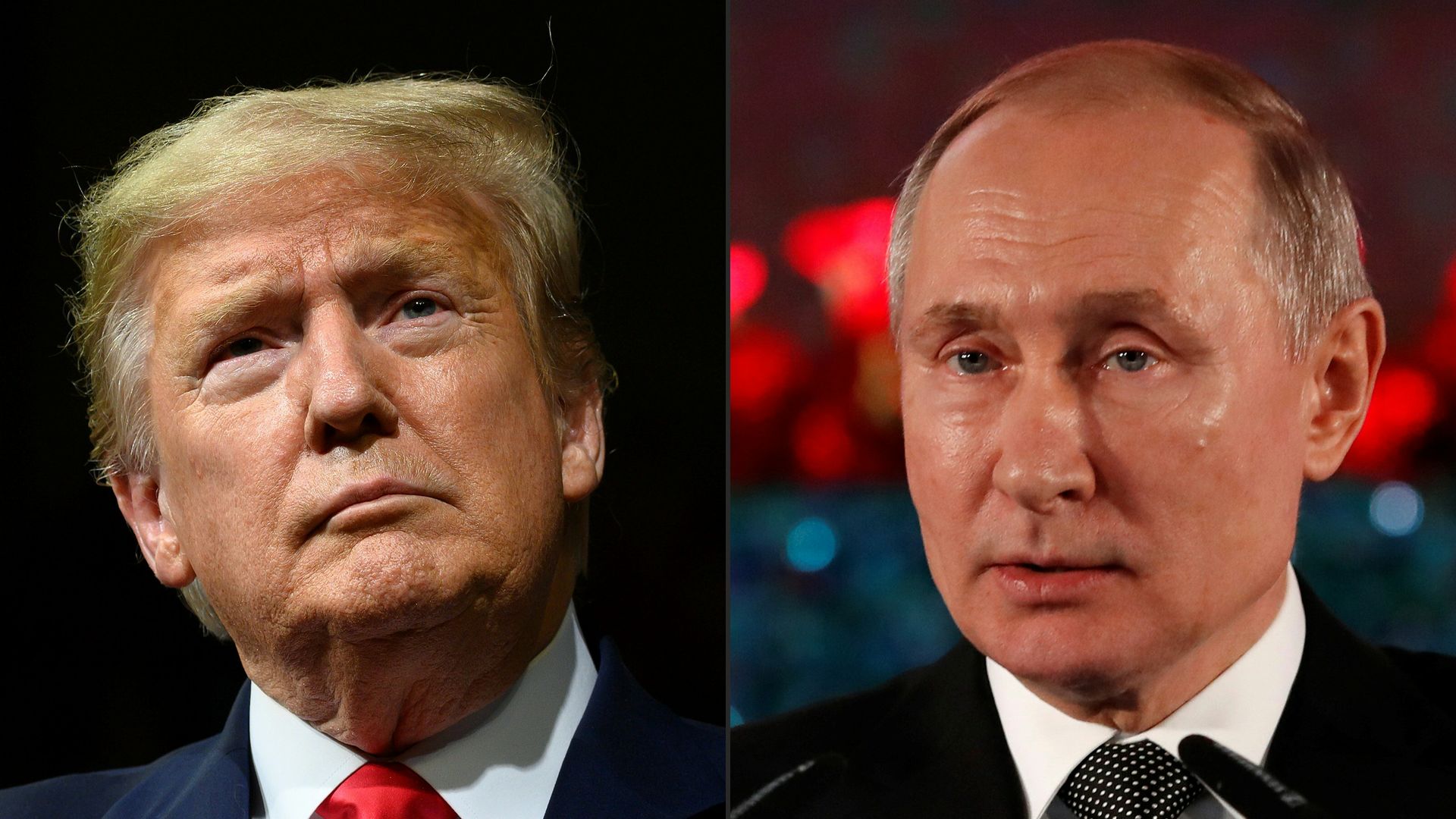The Russia-U.S. divide in oil production negotiations
Add Axios as your preferred source to
see more of our stories on Google.

Photos: Jim Watson and Emmanuel Dunand/AFP via Getty Images
Russia is balking at the idea that market-driven declines in U.S. oil output could represent a significant contribution to a new global production-cutting deal, Bloomberg and Reuters reported this morning.
Why it matters: The Russian posture comes ahead of OPEC+ talks Thursday and a meeting of G20 energy ministers Friday.
- It signals the hurdles in front of efforts to craft a meaningful new agreement to try and stabilize markets as the coronavirus crushes demand.
What they're saying: Kremlin spokesperson Dmitry Peskov told reporters that U.S. cuts occurring over time in response to low prices should not be viewed the same way as top-down restrictions.
- "These are absolutely different reductions. You are comparing overall decline in demand with cuts aimed at stabilizing global markets," he said, per Reuters.
The other side: The Trump administration has not offered mandatory curbs — which would be highly unusual — unlike major players including Russia and Saudi Arabia.
- The Energy Department yesterday forecast a steep decline in U.S. production this year that's maintained through 2021.
- "With regards to media reports that OPEC+ will require the United States to make cuts in order to come to an agreement: The EIA report [yesterday] demonstrates that there are already projected cuts of 2 [million barrels per day], without any intervention from the federal government," per a DOE statement accompanying the forecast.
What we don't know: How Russia's posture will affect the outcome of the OPEC+ talks. "Peskov declined to say what Russia’s position would be in the upcoming meeting," Reuters notes.
Go deeper: Coronavirus crisis tests Trump’s love for cheap oil
